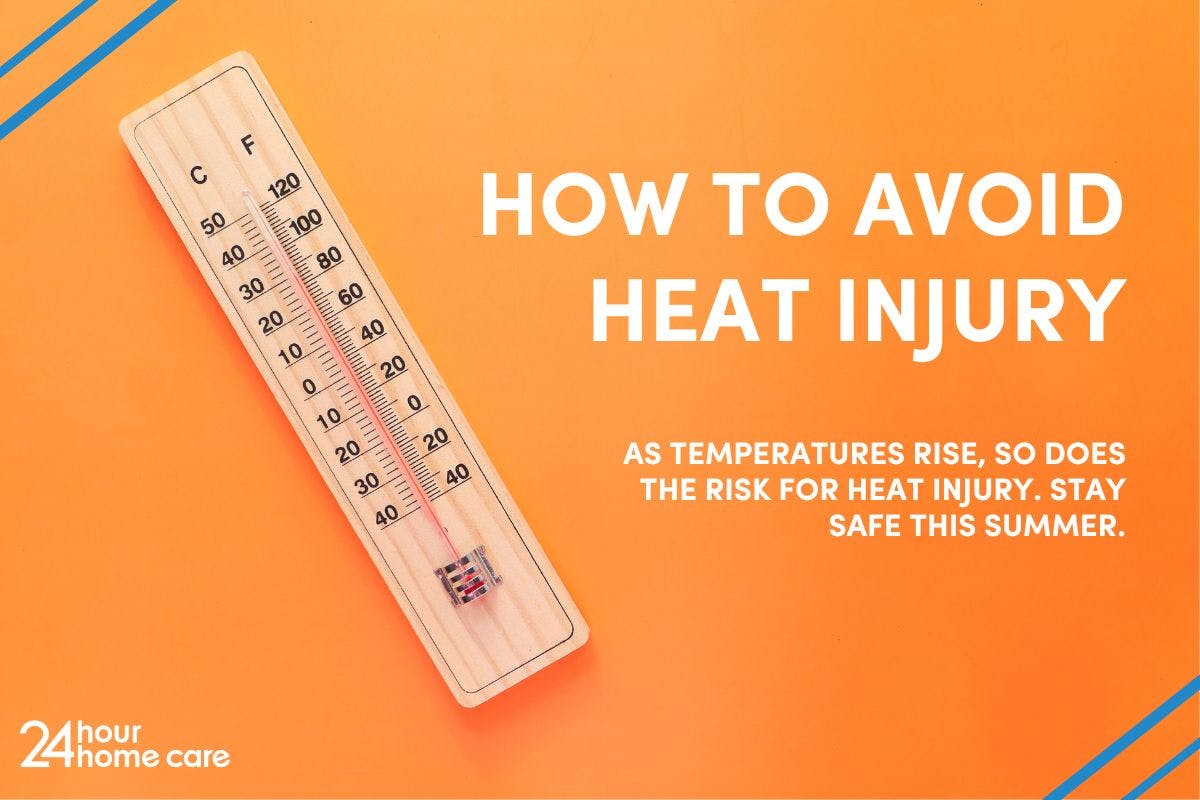How to avoid heat injury
As temperatures rise, so does the risk for heat injury. You can help reduce their risk by following the tips here.

The summer is in full swing and that means we’re seeing heatwaves across the country. While summer is a great time for going out and enjoying the heat, it’s important to stay safe while doing so.
The risk of heat injury increases the longer you spend outside and without sun or temperature protection. Heat injury can be more harmful than it seems, conditions include heat stroke, heat exhaustion, and heat cramps.
The good news is that you can take easy steps to avoid heat injury.
Top Tips to Avoid Heat Injury
Stay Hydrated – The most improtant thing you can do when temperatures rise is to make sure you and your loved ones are drinking enough water. Having water in your system helps regulate body temperature. Symptoms of dehydration include rapid heartbeat, muscle cramps, dizziness, dry mouth, headache, and fatigue.
Replace Salt and Minerals – In addition to staying hydrated, the human body needs salt and minerals to stay balanced. The easiest way to balance salt and minerals is by drinking an electrolyte or sports drink.
Stay Cool Inside – Don't forget to protect yourself while you're inside as well. During the hottest hours of the day, make sure to keep the blinds or curtains closed. This helps keep the temperature inside cooler. Also, keep your windows shut during the hottest hours of the day. Open your windows during the early morning and late afternoon.
Wear Light Clothing and Sunscreen – When you’re outside, make sure to wear lighter colors and longer sleeves. Heat is attracted to darker colors like navy and black. Wearing lighter colors will help keep your body cooler during hot days. Additionally, opt for longer sleeves and pants when out in the sun, they will help keep the sun from directly hitting your skin.
Schedule Outdoor Activities Wisely – The sun is at its highest point around noon. When you’re planning outdoor activities, don’t forget to factor in time and temperature. Make sure to plan any rigorous outdoor activities in the early morning or early evening. These times will be cooler and help your body stay regulated.
Pace Yourself and Take Breaks – When you are outside, don’t forget to take care of yourself and make sure you’re taking the time to hydrate and rest. If you feel your heartbeat getting fast, that’s a sign to find a shady area and drink some water.
Check on Vulnerable People – When there’s a heatwave, don’t forget to check on anyone who may need help. People who are elderly, children, people with disabilities, and those who may be in unique circumstances may need extra help. Now is the time to check on friends, family, or neighbors who may be vulnerable to heat injury.
As temperatures rise, so does the risk for heat injury. You can help reduce their risk by following the tips above. Have a fun and safe summer!
